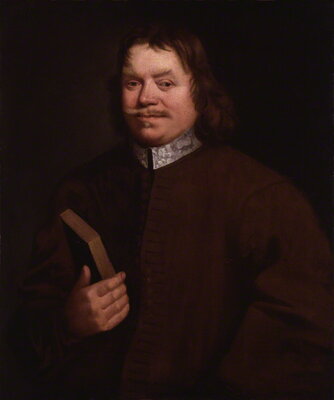
The Revs. Messrs. Chandler and Wilson, bear the following testimony as eyewitnesses to his character:—’ His fancy and invention were very pregnant and fertile. His wit was sharp and quick—his memory tenacious, it being customary with him to commit his sermons to write after he had preached them,’ a proof of extraordinary industry. ‘His understanding was large and comprehensive—his judgment sound and deep in the fundamentals of the gospel. His experience of Satan’s temptations in the power and policy of them, and of Christ’s presence in, and by his Word and Spirit to succor and comfort him, was more than ordinary; the grace of God was magnified in him and by him, and a rich anointing of the Spirit was upon him; and yet this great saint was always in his own eyes the chiefest of sinners and the least of saints.
He was not only well furnished with the help and endowments of nature, beyond ordinary, but eminent in the graces and gifts of the Spirit, and fruits of holiness. He was from first to last established in, and ready to maintain, that God-like principle of having communion with saints as such, without any respect to the difference in things disputable among the godly. His carriage was condescending, affable, and meek to all, yet bold and courageous for Christ. He was much struck at, in the last times of persecution; being far from any sinful compliance to save himself, he did cheerfully bear the cross.’ Such was the character given of him by these two eminent divines, in 1693, while his memory, in its fullest fragrance, was cherished by all the churches.
This humility peculiarly fitted him to instruct the young, of whom he was very fond—
‘Nor do I blush, although I think some may
Call me a baby, ’cause I with their play;
I do ‘t to show them how each file fangles
On which they doating are, their souls entangle;
And, since at gravity, they make a tush,
The very beard I cast behind a bush.’
He had friends among the rich as well as the poor. Of this his solid gold ring and handsome cabinet are proofs. From a letter in the Ellis correspondence, we learn that Bunyan had so secured the affections of the Lord Mayor of London, as to be called his chaplain.
Among his religious friends and associates, he must have been a pleasing, entertaining, lively companion. However solemn, nay awful, had been his experience when walking through the Valley of the Shadow of Death, yet when emerging from the darkness and enjoying the sunshine of Divine favor, he loved social intercourse and the communion of saints. It is one of the slanders heaped upon Christianity to call it a gloomy, melancholy theme: though ‘it is better to go to the house of mourning than to the house of feasting,’ yet the wisely pious man will endeavor, even at an elegant entertainment or a Lord Mayor’s dinner, to drop useful hints. Whenever Bunyan describes a social party, especially a feast, he always introduces a wholesome dish; and it is singular, in the abundance of publications, that we have not been favored with John Bunyan’s Nuts to Crack at Religious Entertainments or a Collection of his Pious Riddles. Thus, at the splendid royal feast given to Emmanuel, when he entered Mansoul in triumph, ‘he entertained the town with some curious riddles, of secrets drawn up by his father’s secretary, by the skill and wisdom of Shaddai, the like to which there are not in any kingdom.’ ‘Emmanuel also expounded unto them some of those riddles himself, but O how were they lightened!
They saw what they never saw, they could not have thought that such rarities could have been couched in such few and ordinary words. The lamb, the sacrifice, the rock, the door, the way.’ ‘The second Adam was before the first, and the second covenant was before the first.’ ‘Was Adam bad before he eat the forbidden fruit?’ ‘How can a man say his prayers without a word being read or uttered?’ ‘How do men speak with their feet?’ The answer, is Proverbs 6:13. ‘Why was the brazen laver made of the women’s looking glasses?’ ‘How can we comprehend that which cannot be comprehended, or know that which passeth knowledge?’ ‘Who was the founder of the state or priestly domination over religion? What is meant by the drum of Diabolus and other riddles mentioned in The Holy War? The poetical riddles in The Pilgrim’s Progress are very striking—
‘A man there was, though some did count him mad,
The more he cast away, the more he had.’
How can ‘evil make the soul from evil turn.’
Can ‘sin be driven out of the world by suffering?’
‘Though it may seem to some a riddle,
We use to light our candles in the middle.’
‘What men die two deaths at once?’
‘Are men ever in heaven and on earth at the same time?’
‘Can a beggar be worth ten thousand a year and not know it?’
He even introduced a dance upon the destruction of Despair, Mr. Ready-to-halt, with his partner Miss Much-afraid, while Christiana and Mercy furnished the music. ‘True, he could not dance without one crutch in his hand; but I promise you he footed it well. Also, the girl was to be commended, for she answered the music handsomely.’ Is this the gloomy fanaticism of a Puritan divine? It is true, that promiscuous dancing, or any other amusement tending to evil, he had given up and discountenanced, but all his writings tend to prove that the Christian only can rationally and piously enjoy the world that now is, while living in the delightful hope of bliss in that which is to come.